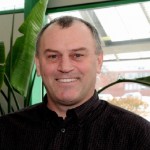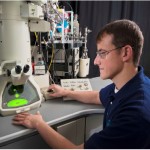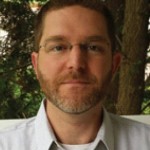 The ME-EM Graduate Seminar speaker on Thursday, October 2 at 4:00 in 103 EERC will be Dr. Ye (Sarah) Sun from Michigan Tech Mechanical Engineering – Engineering Mechanics Department.
The ME-EM Graduate Seminar speaker on Thursday, October 2 at 4:00 in 103 EERC will be Dr. Ye (Sarah) Sun from Michigan Tech Mechanical Engineering – Engineering Mechanics Department.
The title of her presentation will be ‘Human-Centered Monitoring: From Enabling Technology, Human Factor to Computational Diagnosis’.
The rapidly growing population ageing is a global phenomenon in the recent decades. The concomitant prevalence of chronic diseases necessitates proactive, human-centered approaches to reduce the high cost and enhance the biocompatibility and operability of the current healthcare systems. For drivers at all ages, drowsiness is one of the most prevalent root causes of accidents. Driver health and state monitoring provides an effective way to reduce the risk of driver related crashes. This study aims to facilitate the development of human-centered monitoring in healthcare and transportation safety. A comprehensive framework for human-centered monitoring has been developed that includes three major components, i.e., enabling technology, human factor and computational diagnosis. In the technology part, this study establishes a non-intrusive and non-contact interface platform for human health and state monitoring. Unlike the conventional clinical bio-potential measurement system, the platform is able to acquire the electrophysiological signals with a gap between the skin and the electrodes that is occupied by hair, cloth, and air. The non-contact platform avoids skin irritation and allergic contact dermatitis and is suitable for long-term monitoring purpose. To increase the flexibility in practical application, a body area network has also been integrated for different scenarios such as driving and home monitoring. The developed enabling technology was validated using simulated driving scenario, since it constitutes a high stress and high risk condition, especially for people with chronic diseases. For the human factor part, analyses were conducted on the physiological data collected from the drivers operating a high fidelity driving simulator. This involves driver state analyses particularly related to drowsiness and mental stress. The computational component involved the development of algorithms to assess the robustness of different physiological indicators for the extent of driver fatigue. Moreover, physiological signals for mental stress were also investigated which will serve as the technical basis for timely assistance.
Dr. Ye (Sarah) Sun is an assistant professor in the Department of
Mechanical Engineering-Engineering Mechanics at Michigan Technological
University. She received her Ph.D. degree in Electrical Engineering
from Case Western Reserve University. Her research is an
interdisciplinary resort that integrates engineering innovation with
human health and human behaviors. The primary focus is on
human-centered smart monitoring technologies that integrate advance
sensor technology and decision support to improve healthcare
and transportation safety.



